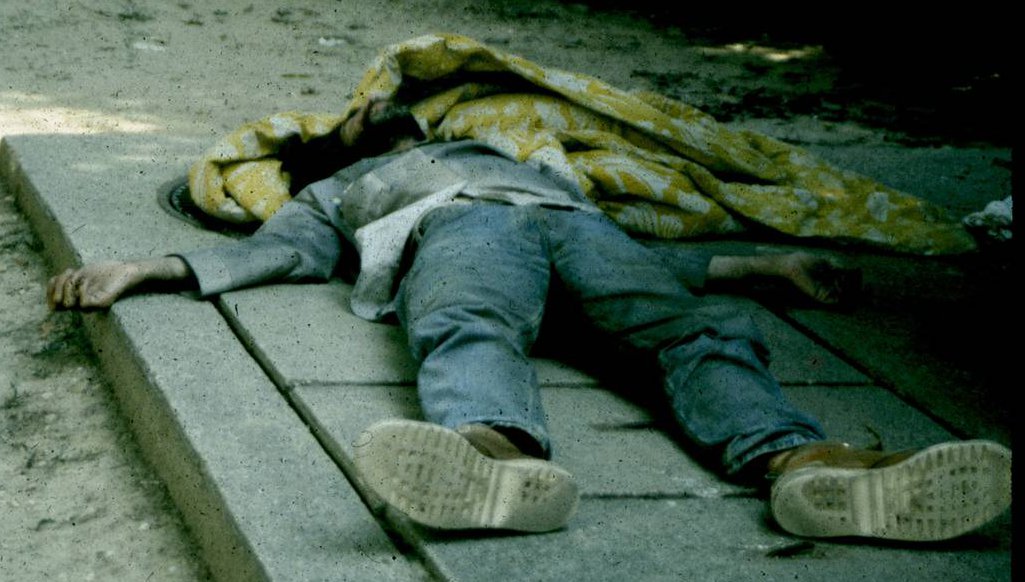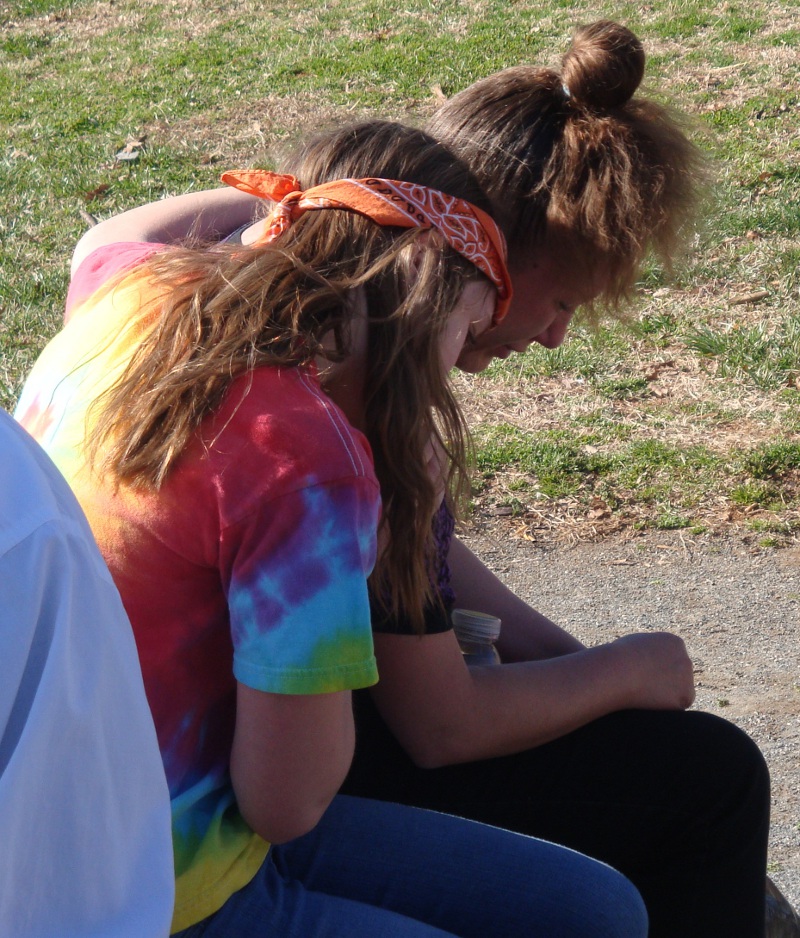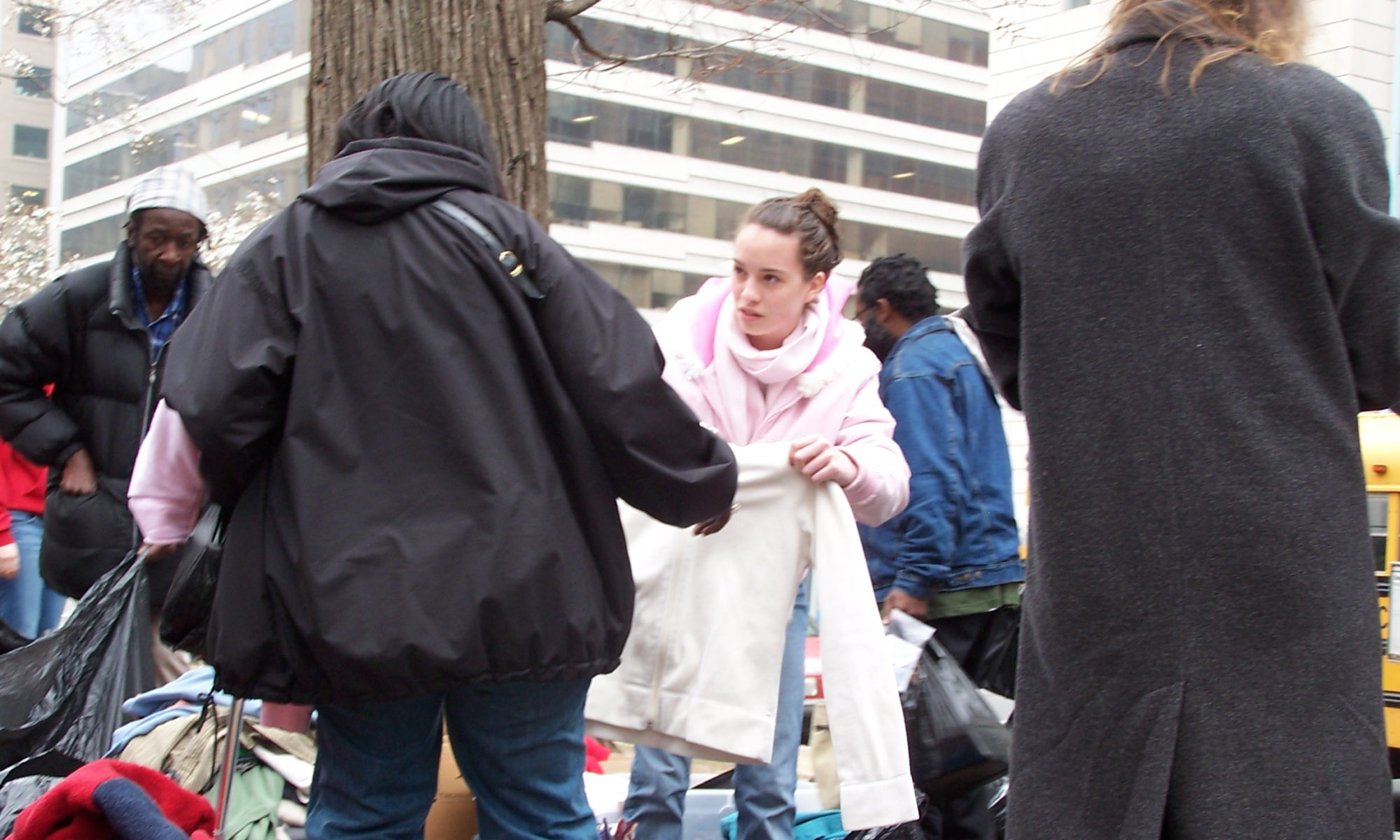by Steve Jennings
Thirty four years ago this November, we packed a few teens, me, and a trunk-load of coats and sweaters in my 1976 Oldsmobile Cutlass and headed to the intersection of 15th Street and Constitution Avenue for the first of hundreds of “TOP Trips” that would follow.
Recently, as I reflected on that first night, my mind’s eye was flooded with images that have come from this ministry over the years. I was able to capture a few on-camera but most live only in my memory. I would like to share a few of them with you.
Ross
The old man pushed his grocery cart to a low wall in front of the Kennedy Center for the Performing Arts in Washington, DC and sat down with a grunt and a sigh. I sat down next to him and started a conversation. For the first five minutes or so, it was a friendly conversation with a delightful old gentleman. Then things began to change.
Ross started telling me how his blood ran through the steam tunnels in the Federal Triangle of DC and that he gave life to all of the federal workers. He went on to say that he was the father of “all the Indian nations”.
As he told me these tall tales, the look in his eyes changed. It seemed as though he looked through me as he spoke. That was my first encounter with a delusional person. There would be many to follow. But, despite his delusions, Ross became my friend. He would call me “Stevie.” The last time I saw him before he passed away, we had a wonderful, delusion-free conversation that lasted over 30 minutes.
The Guy on the Grate
We were serving homeless people in a little plaza at 21st St and Virginia Avenue in DC. As we carried our stuff to the park, we walked by a man passed out on the sidewalk. When I saw him, I decided to bring some food and water out for him just as soon as we set our stuff down. I returned to the spot less than 2 minutes later only to discover he was gone. I didn’t see him anywhere. Maybe God’s reason for all of this was to show us far homeless life can pull you down.

Beautiful Connections
Esther had just finished her first semester of college and was ready to head to DC to minister with the homeless the Sunday before Christmas. I told her how her homeless friend of 5 years, Bob, was able to walk away from the alcohol addiction that held him captive on the street, get a job and move into a rented room. She was literally jumping up and down for joy at the prospect of seeing him. I called him to make sure he would be there.
It was gray and rainy at the park when we arrived. Esther was serving food out of a van. Bob found her and ran to the van. The two of them embraced. Bob’s back was to me, but I could see the smile on Esther’s face. For 5 years she shared his pain and struggles. Now she got to share his victory (which was a miracle, by the way). I wish I had a camera, but that image will be forever etched in my memory. Sometimes prayer and friendship are the two most important things to change a life.
Another special connection took place in Lynchburg about 10 years ago. Caitlyn’s youth group was serving in Lee Park. She joined several of us as we prayed for a young mother whose children were in foster care because she allowed them to stay in the house too long with her now-ex-husband who abused her.
After a couple of adults prayed, Caitlyn began her prayer with “Hey God, it’s me again.” By the time Caitlyn had finished praying, the young mother was sobbing. Caitlyn reached across the prayer circle and hugged her. The two of them spent the next half hour crying, praying, talking and finally laughing together. Both young women were forever moved and impacted by that moment. You may recognize this image from our Facebook page.

These are but a few of the images I carry of my 30+ years in this ministry. It hasn’t always been easy, and there have been some painful, difficult moments, too. But they pale in comparison to the joy of serving and teaching others how to share in that joy.

